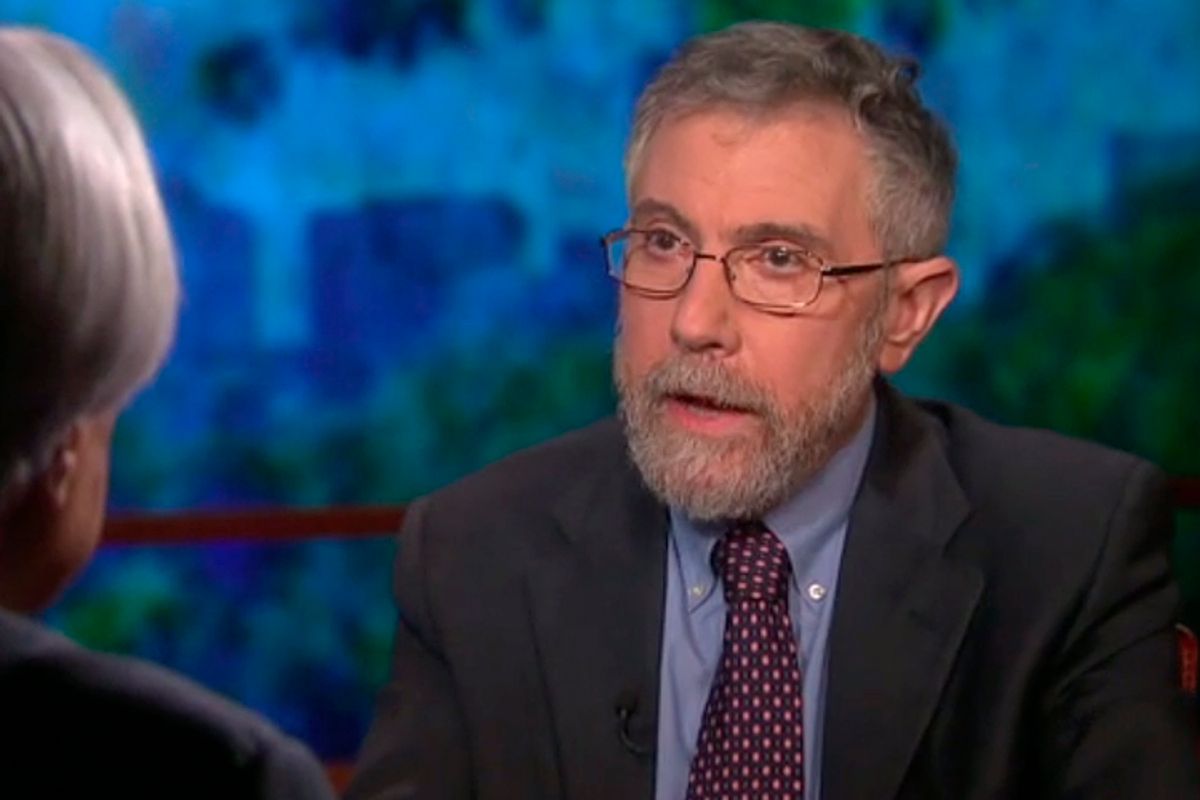In his latest column for the New York Times, celebrated pundit and economist Paul Krugman writes that the democratic, egalitarian project of a modern, integrated Europe is under threat from ideological elites on the one hand and demagogic nationalists on the other.
"The truth is that the European project — peace guaranteed by democracy and prosperity — is in deep trouble," Krugman writes, "the Continent still has peace, but it’s falling short on prosperity and, in a subtler way, democracy. And, if Europe stumbles, it will be a very bad thing not just for Europe itself but for the world as a whole."
Economist that he is, Krugman places the blame primarily at the feet of EU elites who refuse to give up on austerity, regardless of the fact that it's hurting Europe's economies and fueling nationalist, reactionary sentiment.
"The inherent problems of the euro have been aggravated by bad policy," Krugman explains. "European leaders insisted and continue to insist, in the teeth of the evidence, that the crisis is all about fiscal irresponsibility, and have imposed savage austerity that makes a terrible situation worse."
The resulting near-deflation, Krugman says, and the refusal of EU elites to reconsider their approach, has created "a growing distance between governments and the governed." This distance, Krugman warns, "has empowered groups like the National Front in France, whose top candidate for the European Parliament denounces a 'technocratic elite serving the American and European financial oligarchy.'"
If EU leaders aren't careful, Krugman says, they risk crashing the whole European project on the shoals of austerity:
So far, as I said, the elite has been able to hold things together. But we don’t know how long this can last, and there are some very scary people waiting in the wings.
If we’re lucky — and if officials at the European Central Bank, who are closer to being genuine technocrats than the rest of the elite, act boldly enough against the growing threat of deflation — we may see some real economic recovery over the next few years. This could, in turn, offer a breathing space, a chance to get the European project as a whole back on track.
But economic recovery by itself won’t be enough; Europe’s elite needs to recall what the project is really about. It’s terrifying to see so many Europeans rejecting democratic values, but at least part of the blame rests with officials who seem more interested in price stability and fiscal probity than in democracy. Modern Europe is built on a noble idea, but that idea needs more defenders.



Shares